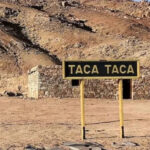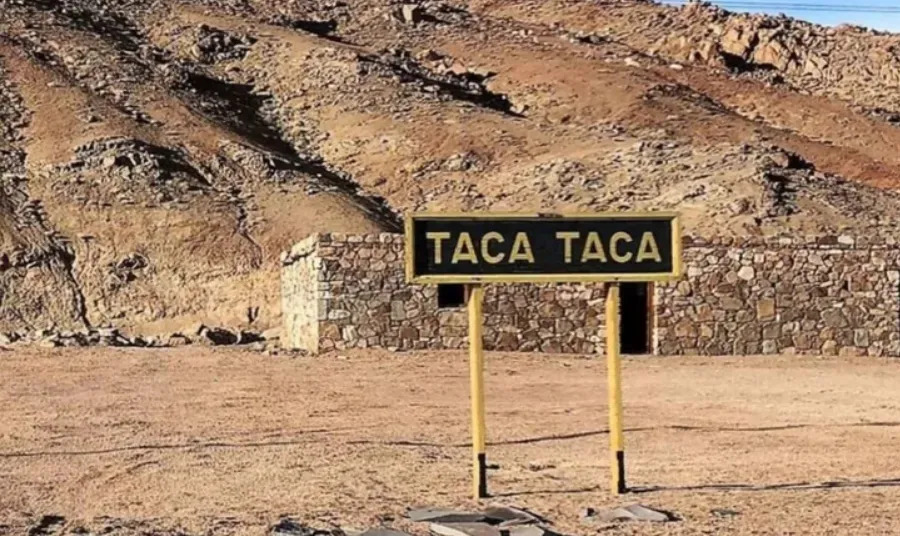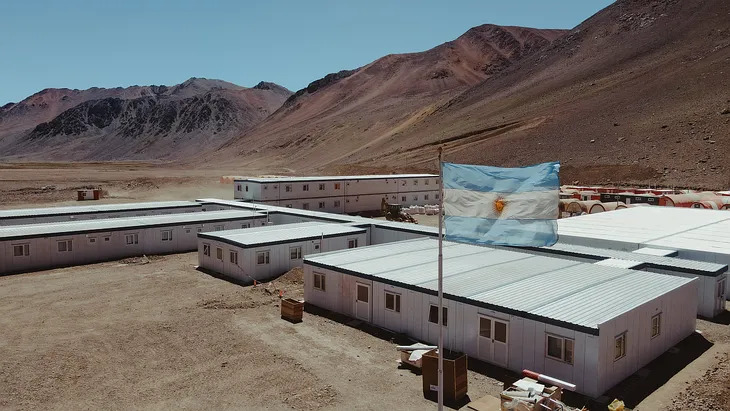Argentina: Modificaron el régimen de inversiones mineras con el objetivo de desburocratizar el sector.
La reforma legal pretende agilizar trámites, reasignar tareas y fortalecer controles, en línea con los objetivos de la Ley Bases
A través de la publicación del Decreto 449/2025 en el Boletín Oficial, el Poder Ejecutivo introduce cambios sustanciales en la Ley 24.196 (Régimen de Inversiones para la Actividad Minera) y en la Ley 24.466 (Banco Nacional de Información Geológica). La medida afecta a empresas mineras, organismos públicos y profesionales del sector, y busca simplificar trámites, reasignar competencias y fortalecer los controles sobre la actividad minera en el país.
El decreto, firmado por el presidente Javier Milei, el jefe de Gabinete, Guillermo Francos, y el ministro de Economía, Luis Caputo, modifica artículos clave de ambas leyes.
Entre los cambios más relevantes, la Secretaría de Minería deja de administrar el Banco Nacional de Información Geológica, función que pasará a estar en manos del Servicio Geológico Minero Argentino (SEGEMAR), un organismo descentralizado bajo la órbita del Ministerio de Economía.
Además, se simplificaron los requisitos para la obtención del certificado de estabilidad fiscal para proyectos mineros y se reforzaron los mecanismos de control mediante la exigencia de informes técnicos independientes.
El decreto se dicta en el marco de la Ley 27.742 (Ley de Bases y Puntos de Partida para la Libertad de los Argentinos), que declaró la emergencia pública en materia administrativa, económica, financiera y energética, y delegó en el Poder Ejecutivo facultades para reorganizar la administración pública. El texto oficial señala que la medida responde a la necesidad de “reducir la intervención estatal y maximizar la eficiencia y eficacia en la gestión pública”, revisando funciones consideradas redundantes o de escasa contribución al interés general.
El Gobierno argumentó que la emisión de certificados de estabilidad fiscal para proyectos mineros, tal como estaba regulada, generaba demoras innecesarias por la exigencia de detallar la carga tributaria vigente en cada jurisdicción.
El nuevo artículo 10 de la Ley 24.196 establece que el certificado solo deberá indicar la fecha de presentación del estudio de factibilidad, que será el momento relevante para determinar la carga tributaria aplicable.
Según el decreto, “el detalle consignado en el certificado de estabilidad fiscal de la carga relativa a los tributos y tasas vigentes (…) resulta innecesario, siendo suficiente la mención de dicha fecha, a los fines de la aplicación del beneficio de la estabilidad fiscal”.
Nuevos controles y simplificación de trámites
El decreto introduce en artículo 18 la obligación de que los beneficiarios del régimen minero presenten anualmente, junto con su declaración jurada, un informe evaluador elaborado por un profesional técnico independiente. Esta medida busca “fortalecer la calidad técnica de la información aportada y, al mismo tiempo, simplificar y hacer más eficiente el proceso de evaluación por parte de la Autoridad de Aplicación”.
En cuanto a la verificación de los compromisos asumidos por los beneficiarios, el nuevo artículo 26 establece que la Secretaría de Minería realizará los controles sobre la base de la información anual presentada por los titulares de proyectos, sin requerir información adicional de otras jurisdicciones, lo que agiliza el proceso y reduce la carga administrativa.
A su vez, mediante los cambios incorporados, se oficializó la creación del Banco Nacional de Información Geológica bajo la dependencia orgánica del Servicio Geológico Minero Argentino».
El objetivo declarado es evitar la superposición de tareas entre la Secretaría de Minería y el SEGEMAR, y aprovechar la capacidad técnica de este último para administrar el banco de datos y garantizar el acceso público a la información geológica nacional.
Las modificaciones afectan directamente a las empresas mineras inscriptas en el régimen de inversiones, que deberán adecuar sus procedimientos de presentación de información y certificación fiscal. También impactan en la estructura administrativa del sector, al reasignar funciones entre la Secretaría de Minería y el SEGEMAR.
(Con información de Infobae)
Argentina: The mining investment regime was modified in order to reduce bureaucracy in the sector.
The legal reform aims to streamline procedures, reassign tasks and strengthen controls, in line with the objectives of the Basic Law.
Through the publication of Decree 449/2025 in the Official Gazette, the Executive Power introduces substantial changes to Law 24.196 (Investment Regime for Mining Activity) and Law 24.466 (National Geological Information Bank). The measure affects mining companies, public agencies and professionals of the sector, and seeks to simplify procedures, reassign competences and strengthen controls over the mining activity in the country.
The decree, signed by the President, Javier Milei, the Chief of Cabinet, Guillermo Francos, and the Minister of Economy, Luis Caputo, modifies key articles of both laws.
Among the most relevant changes, the Mining Secretariat will no longer manage the National Bank of Geological Information, a function that will now be in the hands of the Argentine Mining Geological Service (SEGEMAR), a decentralized agency under the Ministry of Economy.
In addition, the requirements to obtain the fiscal stability certificate for mining projects were simplified and the control mechanisms were reinforced by requiring independent technical reports.
The decree is issued within the framework of Law 27,742 (Law of Bases and Starting Points for the Freedom of the Argentine People), which declared a public emergency in administrative, economic, financial and energy matters, and delegated to the Executive Power powers to reorganize the public administration. The official text states that the measure responds to the need to “reduce state intervention and maximize efficiency and effectiveness in public management”, reviewing functions considered redundant or of little contribution to the general interest.
The Government argued that the issuance of tax stability certificates for mining projects, as it was regulated, generated unnecessary delays due to the requirement to detail the tax burden in force in each jurisdiction.
The new Article 10 of Law 24,196 establishes that the certificate must only indicate the date of presentation of the feasibility study, which will be the relevant moment to determine the applicable tax burden.
According to the decree, “the detail in the tax stability certificate of the burden related to the taxes and rates in force (…) is unnecessary, being sufficient the mention of such date, for the purposes of the application of the tax stability benefit”.
New controls and simplification of procedures
The decree introduces in Article 18 the obligation for the beneficiaries of the mining regime to submit annually, together with their sworn statement, an evaluation report prepared by an independent technical professional. This measure seeks to “strengthen the technical quality of the information provided and, at the same time, simplify and make the evaluation process by the Authority of Application more efficient”.
As regards the verification of the commitments assumed by the beneficiaries, the new Article 26 establishes that the Mining Secretariat will carry out the controls on the basis of the annual information submitted by the project holders, without requiring additional information from other jurisdictions, which speeds up the process and reduces the administrative burden.
At the same time, by means of the incorporated changes, the creation of the National Bank of Geological Information under the organic dependence of the Argentine Mining Geological Service was made official».
The declared objective is to avoid the overlapping of tasks between the Mining Secretariat and SEGEMAR, and to take advantage of the technical capacity of the latter to manage the data bank and guarantee public access to national geological information.
The amendments directly affect mining companies registered in the investment regime, which will have to adapt their procedures for submitting information and tax certification. They also have an impact on the administrative structure of the sector by reassigning functions between the Mining Secretariat and SEGEMAR.
(With information from Infobae)
Descubre más desde Copper Latin America -News-
Suscríbete y recibe las últimas entradas en tu correo electrónico.











